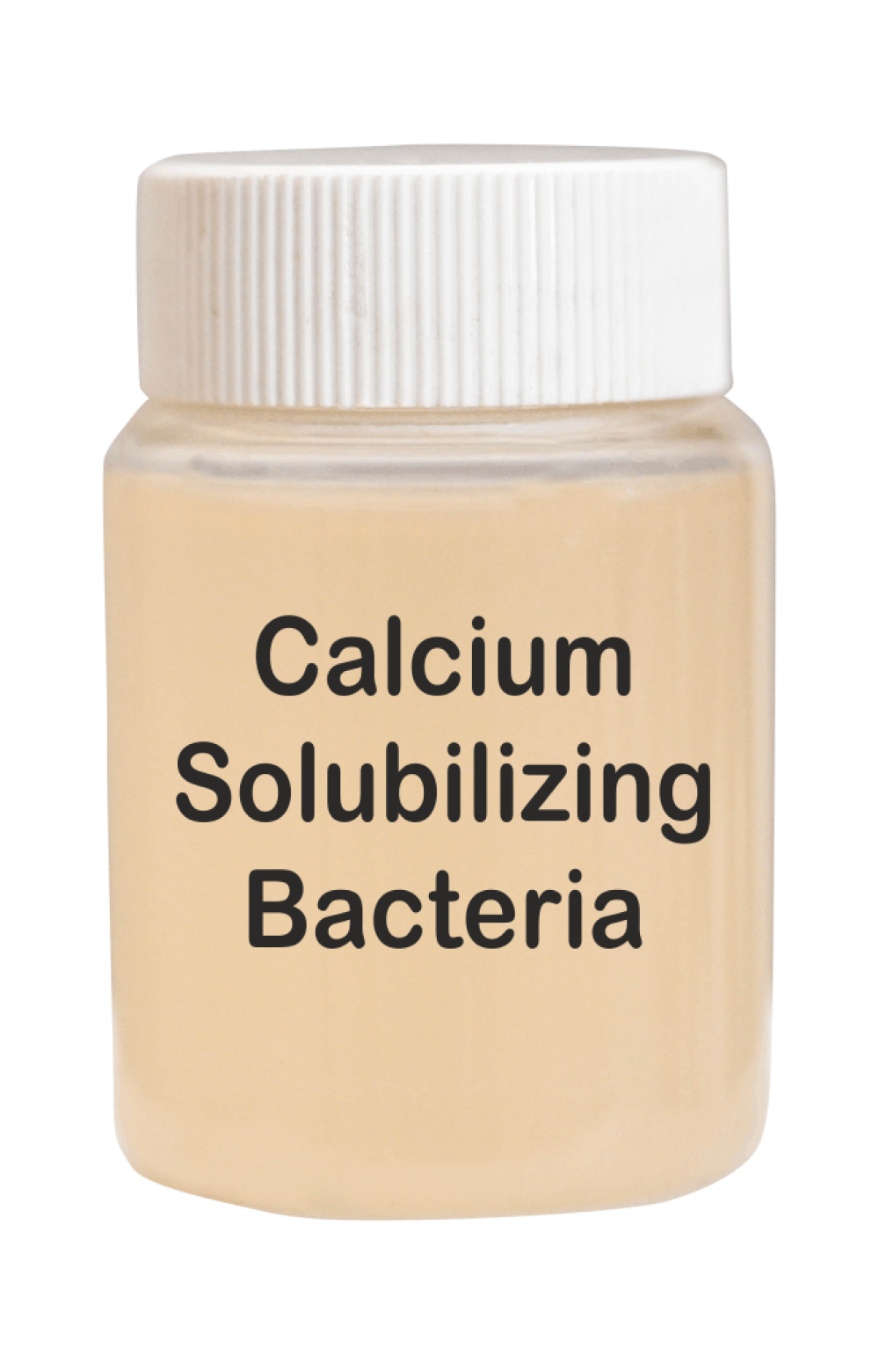






Bio Fertilizer
Calcium-solubilizing bacteria are microorganisms that convert insoluble calcium into soluble forms, enhancing soil fertility and plant health. They possess enzymes like organic acids that break down calcium compounds in the soil, making them available for plants. Calcium is essential for plant growth and development, and these bacteria contribute to soil fertility and nutrient uptake. They can be found naturally in soil, the rhizosphere, and plant roots, forming a symbiotic relationship with plants.
Their presence in the soil ecosystem increases calcium bioavailability and promotes soil structure, nutrient cycling, and plant resistance to stress. These bacteria can be commercially isolated, cultured, and applied as biofertilizers or bioinoculants, improving crop yield and reducing reliance on chemical fertilizers. In summary, calcium-solubilizing bacteria are vital for sustainable agriculture and eco-friendly farming practices, as they enhance calcium availability, improve soil fertility, and reduce reliance on chemical fertilizers.
Significant Cost Savings :
Optimize your budget with our cost-effective solution. The high dilution ratio translates to lower transportation, storage, and application costs, improving your bottom line.
User-Friendly Application :
Streamline your operations with our easy-to-use biofertilizer. Simply dilute and apply, reducing labor and time costs associated with complex fertilization processes.
Exceptional Concentration and Efficiency :
Multiply your impact with just 1 liter of our biofertilizer, which dilutes to make 100 liters of powerful nutrient solution. Maximize efficiency in large-scale operations.
| 1 x 10 10 cell /ml |
We make it our business to advance your business. Get in touch to find out more.
ANBR ELIXIR PVT LTD
PLOT NO. 5144, NEAR PRIME INDUSTRIES, SEVEN WATER TANK ROAD,
NEAR PARAS CHOWKDI, G.I.D.C. INDUSTRIAL ESTATE,
ANKLESHWAR – 393 002.
DIST. BHARUCH, GUJARAT
ANBR ELIXIR PRIVATE LIMITED
Plot No. 10008-3, Near BEIL,
GIDC, Ankleshwar,
Dist :-Bharuch, 393002, Gujarat